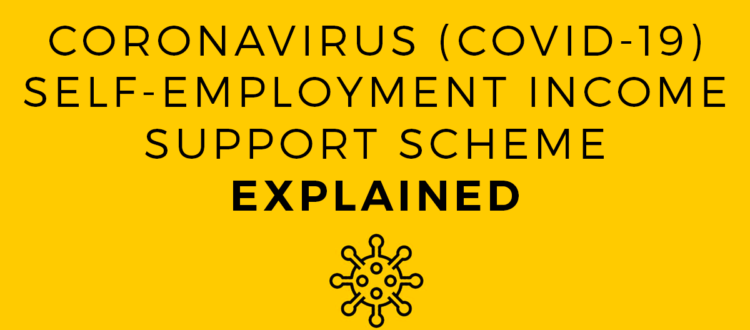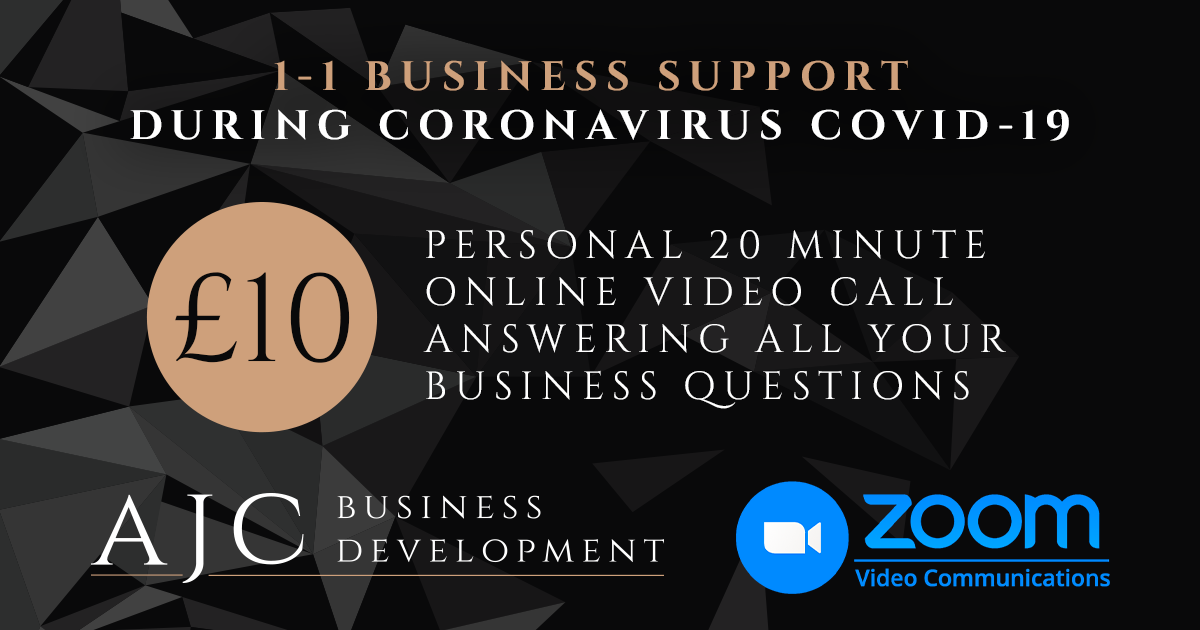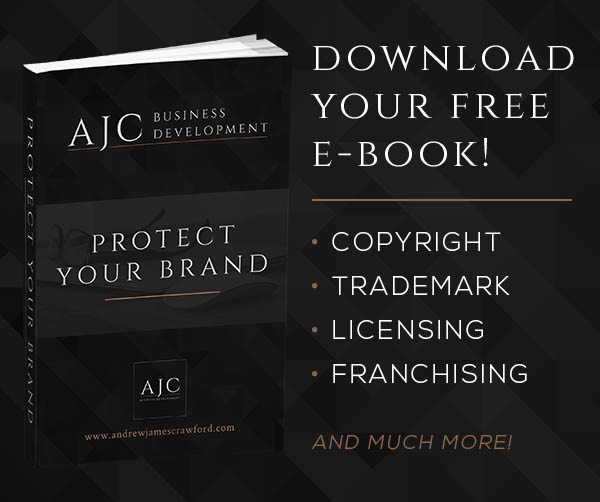Coronavirus (COVID-19) Self-employment Income Support Scheme – Explained
To all my fellow self-employed comrades out there, I totally appreciate that all of this information the government is providing about their new self-employment support scheme is becoming increasingly confusing for many people and so I wanted to just outline all of the key information in one, simple article. My hope is that, having read this, you will have a better idea of everything instead of scrolling through hundreds of different web pages to find all of the information!
What is the Coronavirus (COVID-19) Self-employment Income Support Scheme?
In simple, it is a new scheme that the government are implementing to help the majority of self-employed individuals get through this hard time of losing work due to the effects of coronavirus. The amount you receive is on a per-case basis and it will be a taxable grant, meaning the government will give you the money, it does not need to repaid at all, but it is taxable, so you’ll have to list it as income in your tax return for 2020-21. So bearing this in-mind be sure to put the usual 20% aside to cover your tax, just in-case.
Granted, as with most things this scheme is unfortunately not a ‘catch all’ type of deal and there will of course be individuals out there who are not eligible, or are eligible but due to the way their businesses are setup, won’t benefit very much from the scheme.
How Much is the Grant?
If you are eligible (more on this further-on) and your claim is accepted, the scheme provides you with a taxable grant equal to 80% of your trading profits for the next 3 months. This 80% is deemed via the government looking over your past 3 years of tax returns (or less if you haven’t been running 3 years, but you MUST have submitted at least one self-employment tax return in 2018-19) and taking the average profit amount. Before we get into brass tacks there is a huge caveat here – although you’ll be able to apply for the grant in the near future, HMRC aren’t paying these grants until June 2020…I know! So please bear in mind this amount will be paid in one lump ‘in arrears’ for the value of 3 months covering March, April, May 2020 – not paid monthly into your account from now.
On top of this, the issue for many will be the word ‘profits’, it is not based on the turnover (total amount) you’ve earned each year, so this is the amount after you have deducted all of your allowable expenses etc, so for many of us this figure is usually a lot lower than the actual amount of money we’ve technically earned, since one perk of being self-employed is the amount of allowable expenses we’re allowed to offset, the only down-side to this comes with schemes like this, when it’s calculated on your profit, not turnover.
The figure you submitted on your tax return is your taxable profit, that means with all the allowable expenses deducted.
As a self-employed person your own wage is NOT a deductible expense. If you have deducted your wages to arrive at your NET profit, this should be added back to get your taxable profit. The figure that appears on the tax return.
So in principal the government will look at your past 3 years self-employed tax returns, take the average amount of profit you have made, divide this by 12, then pay you 3 months worth of this value in a lump sum in June 2020.
So let’s look at a working example:
Your past 3 years of tax returns:
2016-17 – Profit = £10,000
2017-18 – Profit = £12,000
2018-19 – Profit = £15,000
The average of all your profits (£10,000 + £12,000 + £15,000)/3 = £12,333.33
This calculates as £1027.77 per month (£12,333.33 divided by 12)
80% of £1027.77 = £822.22
Therefore in this instance the government will pay you 3 months worth of £822.22 = £2,466.66
For ease I have created a simple Excel Sheet in which you can type your yearly figures in and it auto-calculates your 80% valuation for you. This can be downloaded via the link below:
This is of course an approximation and HMRC may change these figures for different circumstances, but it’s good to have a rough idea beforehand for your own reference.
Then one other key aspect to bear in mind is that this monthly value is going to be maxed at £2,500 – so the top figure any one person will be given in June is £7,500 for 3 months income. This means if your profits average out to anything over £37,500 then you’ll not receive the equivalent 80% of anything over this amount.
UPDATE: The government will offer self-employed workers a second and final grant in August. Chancellor Rishi Sunak announced the Self-Employment Income Support Scheme (SEISS) would pay out a second grant worth 70% of monthly trading profits. Individuals do not have to have claimed the first grant to be eligible for the second.
SEPT 2020 UPDATE: On the 25th September 2020 the chancellor announced a new job support scheme and a self-employed grant extension. This announcement aims to help workers affected by corona virus by allowing a third grant for the self-employed and includes a new job support scheme to contribute toward employees’ wages.
The Self-Employment Income Support Scheme has been extended for six months, covering the period from November 2020 to January 2021. Those who are eligible will be granted 20% of their average trading profits, capped at £1,875.
The new Job Support Scheme will replace furlough as of the 1st November 2020 and will run for six months. In order to qualify, employees must work at least a third of their normal hours and be paid in full by their employer. Any ‘normal hours’ they don’t work, the cost is split three ways: The state pays a third, the employer pays a third and the employee will lose a third.
MARCH 2021 UPDATE: The 4th SEISS grant will be available to claim from April (specific date currently unspecified*) and will cover February, March and April 2021.
If you meet the criteria, you can claim 80 percent of your average monthly profits which is capped at £2,500. Please note this £2,500 cap is on a per month basis, this is not the a cap on the total amount of 3 months profit, that is capped separately at a maximum of £7,500.
Who is Eligible for the Grant?
You can only apply for the scheme/grant if you are a self-employed individual (also can be a self-employed member of a partnership) that has been ‘adversely affected’ by the coronavirus, and you:
- Have submitted your Income Tax Self Assessment tax return for the tax year 2018-19
- You traded in the tax year 2019-20, are currently trading when you apply for the scheme and intend to continue trading in tax year 2020/21
- Your self-employed trading profits are less than £50,000
- More than half of your income comes from self-employment
This ‘more than half of your income comes from self-employment’ aspect will be determined by at least one of the following conditions being true:
- Your average trading profits/partnership trading profits in 2018-19 were less than £50,000 and these profits were more than half of your total taxable income
- Your average trading profits in 2016-17, 2017-18, and 2018-19 were less than £50,000 and these profits were more than half of your average taxable income in the same period
So in principal you are only eligible if you have submitted at least one tax return for the year 2018-19 (if you are still late completing this then the government have extended the deadline until 23rd April 2020 so get that sorted!), are still trading, your profits don’t go over £50,000 and over half your income is from self-employment.
Who is Not Eligible for the Grant?
There are of course some self-employed individuals who will unfortunately not be eligible for this grant and include the following list:
- If you pay yourself a salary and dividends through your own company (this instead will be covered by the ‘Coronavirus Job Retention Scheme’ where the government pay 80% of your salary, if you are operating PAYE schemes. This will be available from the end of April.)
- If you have no accounts or filed no tax returns you will not be able to access this scheme
- If you have any late tax returns to file then you have until 23rd April to file them, otherwise you be ineligible
- If your average trading profits were less than 50% from self-employment income (more on this at the end of the article)
How Can I Apply for the Grant?
Applications are all processed online and you simply need to visit the following link to apply:
https://www.gov.uk/guidance/claim-a-grant-through-the-self-employment-income-support-scheme
How to calculate if 50% of your income is from self-employment
As mentioned above, one big stipulation of being eligible for this grant is whether your average income comes from over 50% of self-employment work. So if you are completely self-employed, earn no income from dividends, property etc then this is very straightforward for you as you know you’ll automatically qualify!
However if you do in fact have multiple income streams from property, dividends, employment and self-employment etc then I can imagine many of you out there will be panicking right now trying to figure out if over 50% of your average income comes specifically from self-employment.
So to help I’ve created a bespoke Excel document which you can just input your figures and check for yourselves, just download it via the link below:
For reference as to how this all works, I’ve put a breakdown below as an example:
Working Example of Self-Employed Individual with Dividends, Property and Self-Employed Income
As we understand it here’s an example of an individual who has multiple income sources say, property, dividends and self-employed income.
Self-Employed Trading Profit
2017 – 16,400
2018 – 25,990
2019 – 49,500
Average Trading profit – (16,400+25,990+49,500)/3 = 30,630 < 50,000 – Pass
and
Total Taxable Income (includes dividend income & property income & self-employed income)
2017 – 29,390
2018 – 39,408
2019 – 60,500
Average Taxable Income – (29,390+39,408+60,500)/3 = 43,099
Test 30,630 / 43,099 – 71% – Pass
71% is more than half :Overall : Pass (both tests in 2. have passed)
Again, this is an approximation as we don’t know as yet what the HMRC may change, disallow or restrict.
1-1 Business Support During COVID-19
If none of this has made much sense or you’re still unsure of how this will all work for you personally then please don’t fret, I am also offering a personal online 1-1 service for anyone wanting some support/advice on your own situation. Please take a look here for more information and feel free to book in your consultation if it looks of interest.











Thank you so much for this, clear concise and correct. So much rubbish being spread about.
My entire income comes from rent on some shops. So technically it’s “unearned” income. However, i have submitted tax returns on a self employed basis for the last three years. Will i be eligible for a grant?
Thanks for explaining it simply. I’ve had a few people asking how much they will get.
Thanks for this. We are self-employed (because we have to be under HMRC rules) foster carers for our local authority. Because of our unique employment status we, by regulation, enter our ‘profit’ as £0 on our tax returns. 80% of 0 = 0!
Any ideas?
Nick
Will any Universal Credit claimed one the interim need to be repaid when the Self-employment grant is received?
I am also wondering this
I would also like to know this answer please.
Thank you for the information, I heard if you apply for Universal credit then you might not get a grant for the scheme,, is it true, I am bit confused
rubbish
Thank you very much for this clear guide, very useful. Do you know if we were to claim Universal Credit to cover the intervening months whether they would be deducted from the grant sum paid in June?
Also would the government’s guarantee scheme cover the interest payable on an arranged overdraft? If yes, then wouldn’t an overdraft be more flexible than a loan at covering expenses for the next 3 months?
Im now full time private practice counsellor. I was part time self employed till May last year.I was made redundant last year from Tesco. I have in self employed private practice since 2015. I have a 18/19 tax return which just over half of my income was from self employment. Previous years were lower than my Tesco pay.I did however also have income from rental property and savings 18/19 Does this mean i will get nothing?
Thats very helpful, thank you. My average profit over the last 3 years is approximately £55k, however due to purchasing a second house last year as something to help in my retirement (no pension) I have only a few thousand in savings but mortgage and bills of £1300/month. I am not eligible for the above due to my profits and due to my second home I am only eligible to receive £35/week for child benefit through UC.
I cannot understand why an employee of a company earning 100k would get there 2500/month but I am entitled to nothing? I don’t EXPECT financial aide, but I do expect fairness. Why couldn’t they have just capped the monthly amount at £2500 as they did for employed workers?
Due to this, I am having to continue to work where the customers will still allow me into their offices, which is very few. I have had 6 weeks of work postponed, with no income, no help and no idea when I will be able to go back to work properly. I know that the virus isn’t the governments fault, I would just love it to be fair
Thank you for this … will tax be deducted from this 80% ? And will we have to repay say the 3 months universal credit money from this too ? Thanks karren
How will losses in prior tax returns affect the average? Will AIA capital allowances be included when working out ‘trading profit’? In my case the loss in my first year of trading due to AIA on machinery means my average profit is zero.
Very helpful thankyou .
Many thanks for this information it’s very precise. I am a solo self employed lady with minimum work, due to my own health issues. I did think I had heard that they were not supporting solo businesses ! Is this correct ? Plus I have only been running for 1 and a half years, how do they work out what I could claim – or should I go down university credit Avenue ?
Many thanks
this is great thanks.
also confused about the UC and the grant given for self employed.
which one is it? or both? any to be repaid . ?
Thankyou so much for the information as I am totally confused by this do you please know if working tax credits will be counted as your income? Many thanks Sharon westwood
If I’m a new sole trader from Nov 19 and get tax credits what should do as I’m working no hours and am not earner enough to make any profit yet. Should I just carry on with Tax Credits or something else please help x
Thanks for this. I have got one question as my situation is a bit tricky: I’ve been self-employed since the 1st of March 2019, so I filed my tax return for 18/19 just for one month of trading. Before that, I used to be an employee, then most of my income is from my previous job for that tax year. However, from the day I registered as SE , 100% of my earnings come from self-employment. Would I be eligible for Covid-19 Self-Employment Income Support Scheme or not?
Both my partner and I are self employed. I got an email but he hasn’t. He’s self employed painter and decorator on cis but hasn’t been to work since Tuesday. Does being on cis affect his 80% grant?
My partner and I are both self employed. I’ve had an email from hmrc but he hasn’t. He works as self employed painter and decorator and is on cis . He’s not been working since lockdown started. Will he quality for 80% grant?
Do you know if we would be able to use this current tax year when working out the average profit? My husband is only in his third year now, his first year, due to start up costs made no profit so would drastically reduce his average if they only take last years profits into account. We have his books up to date and ready to submit his tax return as soon as the 5th April comes around. Would be so helpful to pur financial situation if they could include this year.
Would a self employed person on working tax credits qualify for this, and if so, would it affect their eligibility to continue receiving working tax credits after the crisis is over ?
Hi I was advised that I no longer had to physically fill out a self assessment and it would auto be done for me (about 5yr ago), as my financial affairs were relatively straight fwd and I didn’t earn enough to pay tax. It was a new thing introduced from 2013. All of my tax forms are submitted and up to date a they are automatically done by Gov but not myself. Will I be entitled? Will they go off the fact that I can earn up to £12,600 current? Or is it best to request to physically fill out an assessment? I have looked to see if I can do this but the option on my account isn’t there as it’s saying it’s already been filed.
Xx
Adversely affected,
Does this mean a total shut down of work, then your eligible?
I have abit of work, but nothing like I would be usually getting.
The work I am doing now, should i delay the invoice until i receive the grant?
What if your tax return from 18/19 was only for less than 12 months, will they look at this years or will they use that amount and devide by 12?
How do I get a business interruption loan my biz bank is not answering the phone and not giving any links on how to apply
Thank you for clearing up some information. Can I ask one question i started my business in July 2017 and the lass 2 years I have not earns over the £11,000 tax bracket, so I believe I have made no profit. Would I still be able to claim what I have earnt?
Hi I started self employment on the 26th november 2018 and have a tax return dated for 2019 just wondered if i was eligible any info would be appreciated thanks
Thank you – I found this extremely helpful
Yes you will pay tax on this, so in effect you are only getting 51% and no you dont have to repay the universal credit but you need to declare it as income
This article is not exhaustive and not the full picture. Small Company Directors get nothing, I’m in a situation where I am a director AND Self Employed, I earn less than £50k and my income from is SE is less than 50% of that. I don’t operate PAYE. Me and my business partner get zero help, nada, nothing, yet the our fellow worker who is not a partner & who invoices for his wage as Self Employed is entitled to the help.
Thanks for that information it was really useful it’s going to take time but at least I will be getting some money back off the government thanks
Can I claim the 80% wages as well as claiming the universal credit my and my husband was both self employed and have no work due to the Corona virus.
Hi , I know I will qualify, but am still being paid by some clients in order to retain my services in the future. Does this disqualify me or can I still make a claim?
Hi there I was self employed 16-17 17-18. 18-19 I was employed until last June, since I have been self employed again, not sure if I qualify. Any help would be great. Thanks Mat.
Does one need to send 3 years accounts or will they just check with HMRC ? I think the latter is best.